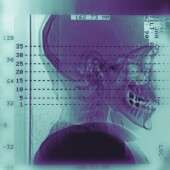CT scans performed during maxillofacial surgery are rapid

(HealthDay)—Intraoperative computed tomography (CT) scans performed during maxillofacial surgery are quick, lasting an average of 14.5 minutes, according to a study published online Jan. 8 in JAMA Facial Plastic Surgery.
David A. Shaye, M.D., from the Massachusetts Eye and Ear Infirmary in Boston, and colleagues conducted a retrospective review to examine the time needed to perform intraoperative CT scans during maxillofacial surgery. Data were included from 38 (18 routine, 20 complex) maxillofacial reconstruction procedures that included intraoperative CT.
The researchers found that the most common fracture in both routine and complex cases was an isolated orbital fracture. The mean total scan time was 14.5 minutes, which did not vary with complexity of the case (P = 0.34). In nine patients, intraoperative revisions were performed—eight in complex cases and one in a routine case (P = 0.004). During the study period, there was no reduction in total scan time (P = 0.22). For the most experienced surgeon, the mean scan time was 3.78 minutes shorter than for other surgeons as a group (P = 0.02).
"Current intraoperative CT scanning techniques are rapid, averaging 14.5 minutes per case," the authors write. "We recommend surgeons consider the use of intraoperative CT imaging for maxillofacial reconstruction, particularly in complex procedures."
More information:
Abstract
Full Text (subscription or payment may be required)
Copyright © 2015 HealthDay. All rights reserved.
















